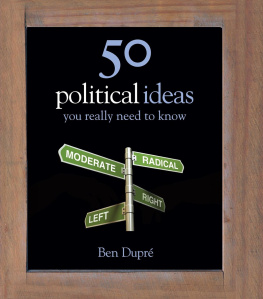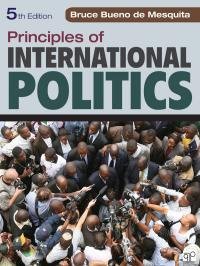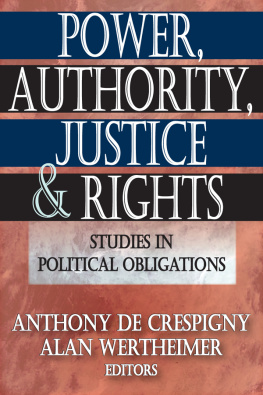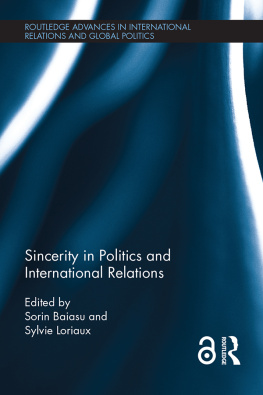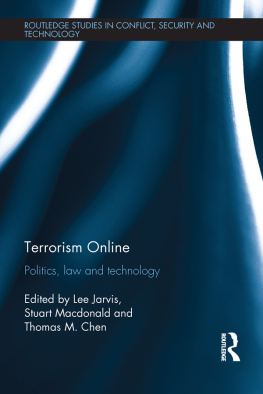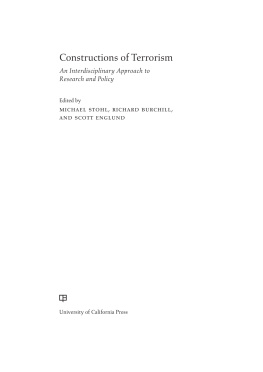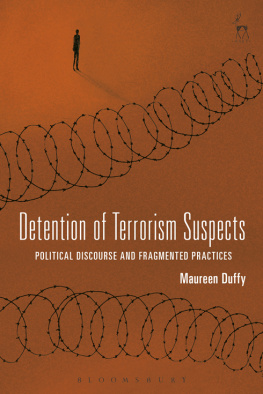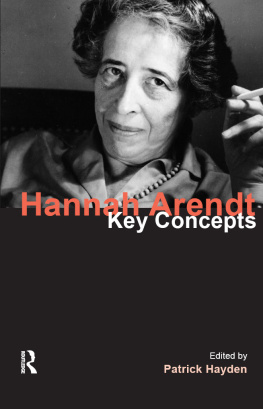political ideas
you really need to know

Ben Dupr

First published in 2011
This ebook edition published in 2013 by
Quercus Editions Ltd
55 Baker Street
7th Floor, South Block
London W1U 8EW
Copyright 2011 Ben Dupr
The moral right of Ben Dupr to be identified as the author of this work has been asserted in accordance with the Copyright, Design and Patents Act, 1988.
All rights reserved. No part of this publication may be reproduced, stored in a retrieval system, or transmitted in any form or by any means, electronic, mechanical, photocopying, recording, or otherwise, without the prior permission in writing of the copyright owner and publisher.
Every effort has been made to contact copyright holders. However, the publishers will be glad to rectify in future editions any inadvertent omissions brought to their attention.
Quercus Publishing Plc hereby exclude all liability to the extent permitted by law for any errors or omissions in this book and for any loss, damage or expense (whether direct or indirect) suffered by a third party relying on any information contained in this book.
A catalogue record of this book is available from the British Library
Ebook ISBN 978 1 84916 569 3
Print ISBN 978 1 84916 254 8
Designed by Patrick Nugent
You can find this and many other great books at:
www.quercusbooks.co.uk
Contents
POLITICAL THEORY IDEOLOGIES THE MACHINERY OF POLITICS THE STUFF OF POLITICS ALL THE WORLDS A STAGE
Introduction
Politics is supposed to be the second oldest profession, joked Ronald Reagan in 1977. I have come to realize that it bears a very close resemblance to the first. With apologies to the man who was to become 40th president of the USA (and to logic), it may be that the second oldest profession is in fact older than the first. For behaving politically is, arguably, inseparable from being human. Aristotles definition of human beings as za politika (political animals) is based on his view that people express themselves most fully and characteristically within the context of the Greek city-state, or polis the word from which politics is derived. The polis, then, is the natural habitat of political animals, where they interact cooperatively to establish the laws and build the institutions on which social order and justice depend. And if humans are essentially political, it follows that life without politics is impossible.
The polis may be a product of civic collaboration, but its animating force is conflict. If people did not habitually disagree about things, there would be no need for politics. In a world of complete concord or overwhelming oppression politics could not thrive, because disagreement would be either absent or obliterated. We need to live politically because there is no general agreement about how the good things in life should be shared out; about who should have authority over whom, and how it is decided. As Mao Zedong shrewdly observed, politics is war without bloodshed: a means of resolving conflict without recourse to violence. The only common agreement, in a politically open society, is an agreement to tolerate difference, so politics is the art (or perhaps science views differ) of compromise.
As disagreement is the essence of politics, it would be an injustice to the subject if I were to seek to justify the particular selection of 50 political ideas covered in this book. Indeed, given that finality is not the language of politics (as Disraeli observed), I will not even pretend that the treatment of each is definitive. I will merely thank my publishers (first Richard, now Slav) for their continuing support and my family for demonstrating that a sound political settlement does not depend on reason or equal division of labour. Amor vincit omnia .
Ben Dupr
Oxford 2010
Liberty
In the liberal democracies of the West, liberty is widely held to be the most basic of human rights: an ideal that is worth fighting for and, if need be, dying for. The great value attached to liberty is a measure of the many bitter struggles that have been fought to win it: against churches that were willing to kill to defend their orthodoxies; against the absolute power of monarchs; against the oppression of women and political dissidents; against slavery, prejudice, ignorance, and a thousand things besides.
Since the great American and French revolutions in the latter half of the 18th century, liberty has stood pre-eminent as the defining principle of liberalism. According to John Locke, a political theorist whose work inspired the Founding Fathers of the United States, the provision of liberty is the ultimate justification of a states legal constitution: The end of law is not to abolish or restrain, but to preserve and enlarge freedom. The freedom to hold whatever political and religious views one wishes; to express such views without fear or restraint; to decide for oneself where and in what manner to live ones life: such are the prizes of liberty.
According to the US Declaration of Independence of 1776, liberty, in company with life and the pursuit of happiness, is one of the natural and inalienable rights endowed upon all humans equally. It is a right that should not be limited without the strongest cause, yet neither can it be unlimited or absolute. As the English social philosopher and historian R.H. Tawney observed in Equality (1938), Freedom for the pike is death for the minnows. Unfettered freedom or licence inevitably infringes the liberty of others. But where should we draw the line? Governments typically respond to external threats, such as war and terrorism, by restricting civil liberties; and the erosion of liberty that results is often, in the view of critics, no less insidious than the dangers that supposedly justified it.
The new price of liberty The price of liberty, proverbially, is eternal vigilance. The original point was that civil liberties should be under constant scrutiny, lest they be eroded by the surreptitious action of government and lost. Today, in an extraordinary inversion, it is citizens themselves who have become the objects of eternal vigilance, as intelligence and law-enforcement agencies use ever more sophisticated technology to watch over us. Our movements are monitored by drones, satellites and a million surveillance cameras; our physical characteristics are biometrically analysed; our computer data is mined and profiled; our phone calls are routinely tapped; our emails are scanned. Big Brother is indeed watching.
Positive and negative freedom No modern account of liberty can ignore the seminal contribution made by the 20th-century political philosopher Isaiah Berlin. His analysis is constructed around a key distinction between two concepts of liberty: positive and negative freedom.
We commonly think of freedom as existing where there is no external restriction or coercion: you are free so long as there is no obstacle preventing you from doing what you want to do. This is what Berlin calls negative freedom. In considering the circumstances in which it is permissible for society to curtail such freedom, Berlin supports the harm principle associated particularly with the Victorian philosopher John Stuart Mill. This stipulates that individuals should be left free by the state to act in any way that does not damage the interests of others. In this way an area of individual freedom can be defined, a private space that should remain sacrosanct and immune to outside interference. Freedom in this sense is always a compromise between individuals living together in society. What freedom means, wrote the British dramatist Tom Stoppard in 2002, is being allowed to sing in my bath as loudly as will not interfere with my neighbours freedom to sing a different tune in his.
Next page
